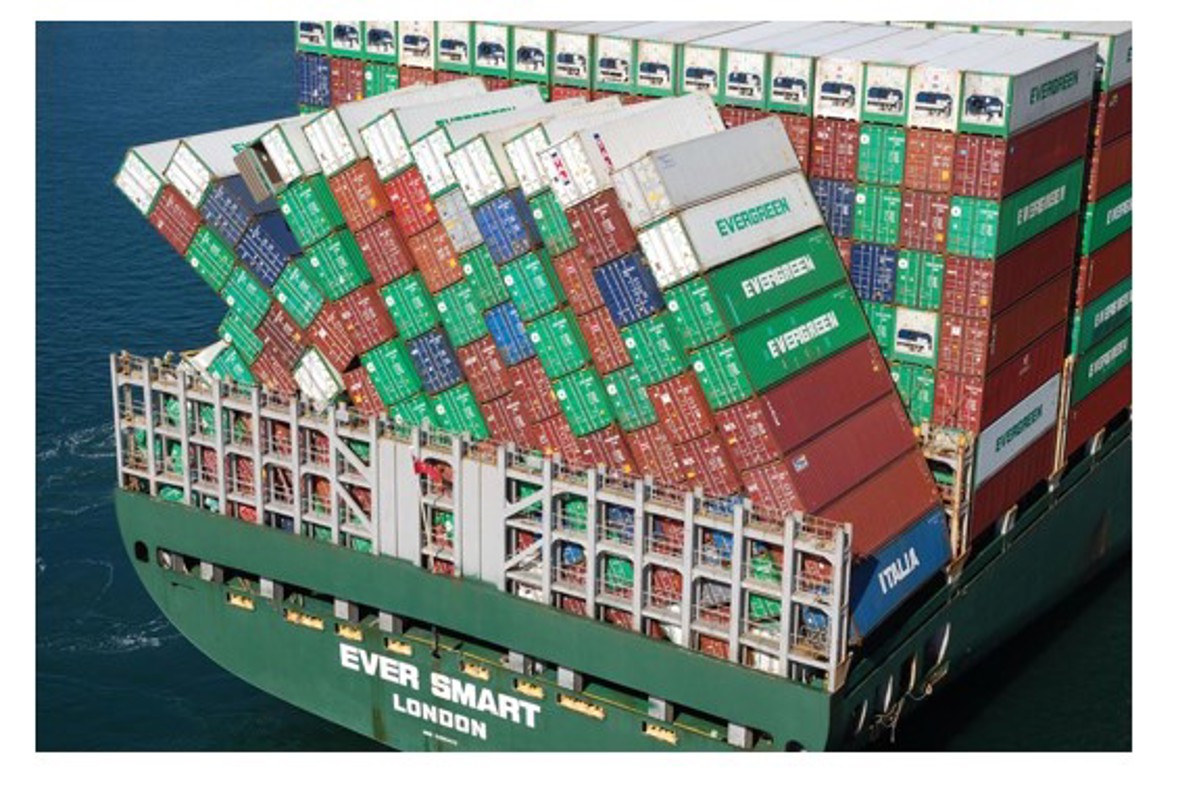MAIB: Loss of cargo containers overboard from container ship Ever Smart
- Safety Flash
- Published on 28 September 2020
- Generated on 30 June 2025
- IMCA SF 28/20
- 2 minute read
Jump to:
The United Kingdom Marine Accident Investigation Branch (MAIB) has published Accident Investigation Report 14/2020 relating to an incident in which 42 freight containers were lost overboard during a storm
What happened?
In October 2017, UK registered container ship Ever Smart suffered a container stow collapse while on passage between Taipei, Taiwan and Los Angeles, USA.
The master had changed the ship’s passage plan to avoid severe weather caused by a developing depression east of Japan.
The ship continued in heavy seas; rolling and pitching heavily with frequent bow flare slamming.
Once the weather had abated, the crew discovered that the container stacks on the aft most bay had collapsed and toppled to port. Of the 151 containers in the stow, 42 were lost overboard and 34 were damaged. Superficial damage was caused to the ship.

What were the causes? What went wrong?
Safety issues raised were:
- The loss of the containers most likely occurred during a period of heavy pitching and hull vibration in the early morning.
- A combination of factors resulted in a loss of integrity for the whole deck cargo bay; in particular, the containers were not stowed or secured in accordance with the cargo securing manual.
- The container lashings might not have been secured correctly
Actions taken and lessons learned
The MAIB recommendations to the owners were to improve standards of:
- stowage plans produced ashore
- knowledge of the dangers of bow flare slamming
- lashing gear maintenance management.
Related Safety Flashes
-
IMCA SF 18/20
12 June 2020
-
-
IMCA SF 07/19
18 April 2019
-
IMCA SF 02/07
12 March 2007
IMCA Safety Flashes summarise key safety matters and incidents, allowing lessons to be more easily learnt for the benefit of the entire offshore industry.
The effectiveness of the IMCA Safety Flash system depends on the industry sharing information and so avoiding repeat incidents. Incidents are classified according to IOGP's Life Saving Rules.
All information is anonymised or sanitised, as appropriate, and warnings for graphic content included where possible.
IMCA makes every effort to ensure both the accuracy and reliability of the information shared, but is not be liable for any guidance and/or recommendation and/or statement herein contained.
The information contained in this document does not fulfil or replace any individual's or Member's legal, regulatory or other duties or obligations in respect of their operations. Individuals and Members remain solely responsible for the safe, lawful and proper conduct of their operations.
Share your safety incidents with IMCA online. Sign-up to receive Safety Flashes straight to your email.